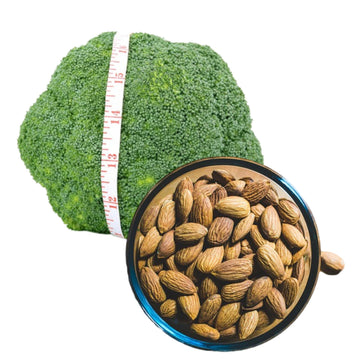
Introduction:
Maintaining a healthy and balanced diet is crucial for overall well-being, and one key element often overlooked is dietary fiber. While many individuals focus on protein intake, whether from animal or plant sources, the significance of fiber cannot be overstated. In this article, we will explore the importance of fiber in your diet and highlight one significant advantage that plant protein has over whey: its fiber content.
Understanding Fiber:
Fiber is a type of carbohydrate that cannot be digested by the human body. Instead, it passes through the digestive system relatively intact, providing a range of health benefits. There are two main types of fiber: soluble and insoluble. Soluble fiber dissolves in water and forms a gel-like substance, while insoluble fiber adds bulk to the stool. Both types are essential for maintaining a healthy digestive system and promoting overall health.
The Role of Fiber in Digestion:
Fiber plays a crucial role in promoting healthy digestion. It adds bulk to the stool, preventing constipation and promoting regular bowel movements. Additionally, fiber acts as a prebiotic, providing nourishment for beneficial gut bacteria. These bacteria help break down food particles, aid in nutrient absorption, and support a healthy immune system. By including an adequate amount of fiber in your diet, you can support optimal digestive health.
The Health Benefits of Fiber:
Weight Management and Fat Loss: High-fiber foods tend to be more filling, which can help control appetite and prevent overeating. Fiber also slows down the digestion process, promoting satiety and reducing the likelihood of excessive calorie consumption. Furthermore, fiber can aid in fat loss by reducing the absorption of dietary fat and increasing the excretion of fat through the stool. It can also help regulate hormones involved in hunger and fat storage, leading to more effective weight management.
Blood Sugar Control:
Soluble fiber can help regulate blood sugar levels by slowing down the absorption of glucose. This can be particularly beneficial for individuals with diabetes or those at risk of developing the condition.
Heart Health:
A high-fiber diet has been linked to a reduced risk of heart disease. Soluble fiber helps lower cholesterol levels by binding to cholesterol in the digestive system and aiding its elimination.
Gut Health:
Fiber acts as a prebiotic, promoting the growth of beneficial gut bacteria. A healthy gut microbiome is associated with improved digestion, enhanced immune function, and a reduced risk of certain diseases.
Plant Protein and Fiber Content:
When comparing plant protein to whey protein, one significant advantage of plant protein is its higher fiber content. Whey protein usually has no fiber at all. Many plant-based protein sources, such as legumes, nuts, seeds, and whole grains, are also excellent sources of dietary fiber. By incorporating plant protein into your diet, you can simultaneously increase your protein intake and boost your fiber consumption, reaping the benefits of both. B Maximum offers a number of plant-based proteins that will help you add both fiber and protein to you diet!
Conclusion:
While protein is essential for muscle growth and repair, the importance of fiber in your diet should not be overlooked. Fiber plays a crucial role in promoting healthy digestion, weight management and fat loss, blood sugar control, heart health, and gut health. By choosing plant protein sources, you can enjoy the added advantage of increased fiber intake. So, prioritize fiber-rich foods in your diet, and experience the benefits of a well-rounded and nourishing eating plan.







